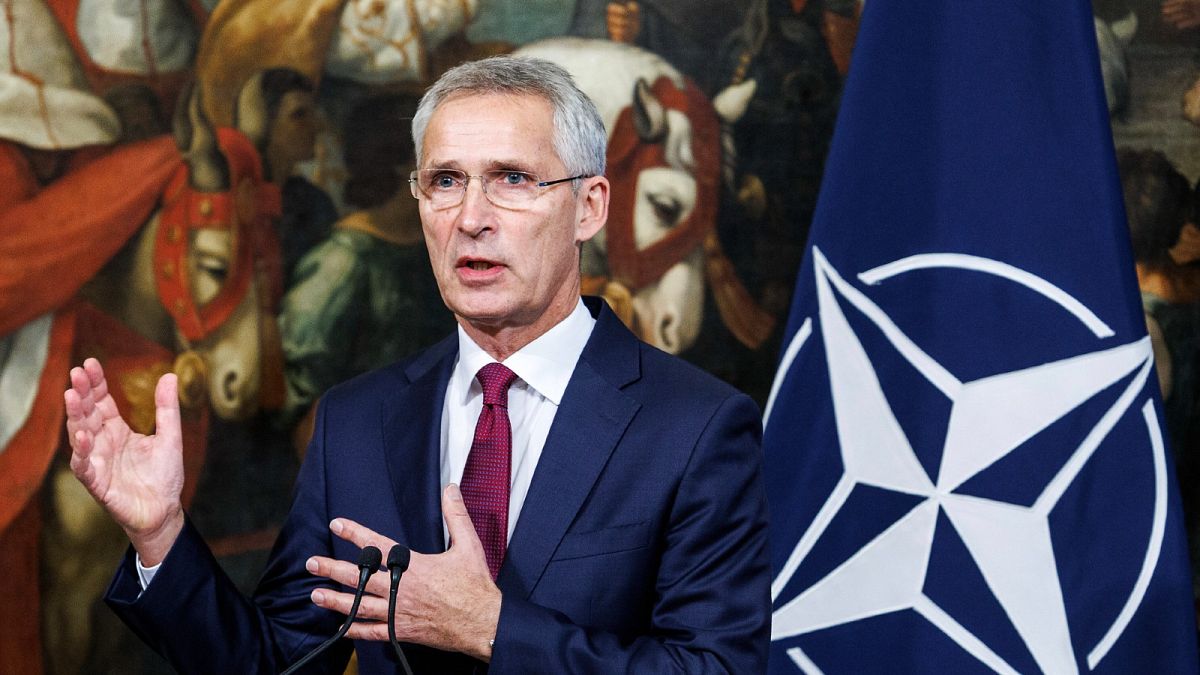Jens Stoltenberg will address the press on Wednesday after chairing an emergency meeting of the North Atlantic Council to address the deadly explosion in Poland linked to a Russian-made missile.
The deadly explosion in Poland on Tuesday night was "likely caused" by a Ukrainian air defence missile but Russia carries the "ultimate responsibility" for the incident, Jens Stoltenberg said on Wednesday
"Our preliminary analysis suggests that the incident was likely caused by a Ukrainian air defence missile fired to defend Ukrainian territory against Russian cruise missile attacks," the NATO Secretary General told reporters after an emergency meeting of the alliance's Security Council.
He stressed that the investigation into the explosion is still ongoing but that there is "no indication that this was the result of a deliberate attack. And we have no indication that Russia is preparing offensive military actions against NATO."
"But let me be clear. This is not Ukraine’s fault. Russia bears ultimate responsibility, as it continues its illegal war against Ukraine," he added.
The meeting at NATO headquarters in Brussels comes after two people were killed in eastern Ukraine, near the border with Ukraine, on Tuesday night, because of a missile.
Doubts over who had fired the missile saw Poland initially raise the spectre of invoking NATO's Article 4 which provides for the alliance's 30 members to "consult together whenever, in the opinion of any of them, the territorial integrity, political independence or security of any of the Parties is threatened."
Stoltenberg confirmed however that "there has been no call for an Article 4 meeting".
Polish Prime Minister Mateusz Morawiecki had a few minutes earlier said that "most of the evidence we have collected indicates that perhaps the activation of Art. 4 will not be necessary this time, but this instrument is still in our hands and we will of course make a decision on this matter."
Morawiecki called for calm and raised the military readiness of some units on Tuesday evening. The Russian ambassador to Poland was also summoned by the foreign ministry.
German Chancellor Olaf Scholz had earlier urged against drawing hasty conclusions, emphasising on Twitter: "One thing is clear: none of this would have happened without Russia's war of aggression against Ukraine."
Russian forces unleashed a barrage of missile strikes against Ukrainian civilian targets including in the capital city Kyiv on Tuesday as leaders of the G20 were gathered in Bali, Indonesia.
Russian President Vladimir Putin was absent from the two-day summit, which foreign minister Sergey Lavrov attended instead.
The NATO chief reiterated his support for more air defence systems as well as counter-drone systems to be provided to Ukraine so that it can defend itself against Russian attacks.
But he also flagged that the incident also "demonstrates the dangers connected to the ongoing war in Ukraine" and the importance for the alliance to reinforce its own presence and capabilities on the eastern flank.
"NATO is prepared for situations like this. We are exercising, we are preparing," he said, adding: "We have air defence systems in place that are active 24/7, all the time."
He also affirmed that NATO has "military lines of communication" with Russia but would not confirm if any kind of contact had taken place between the alliance and Moscow over the past 24 hours.
